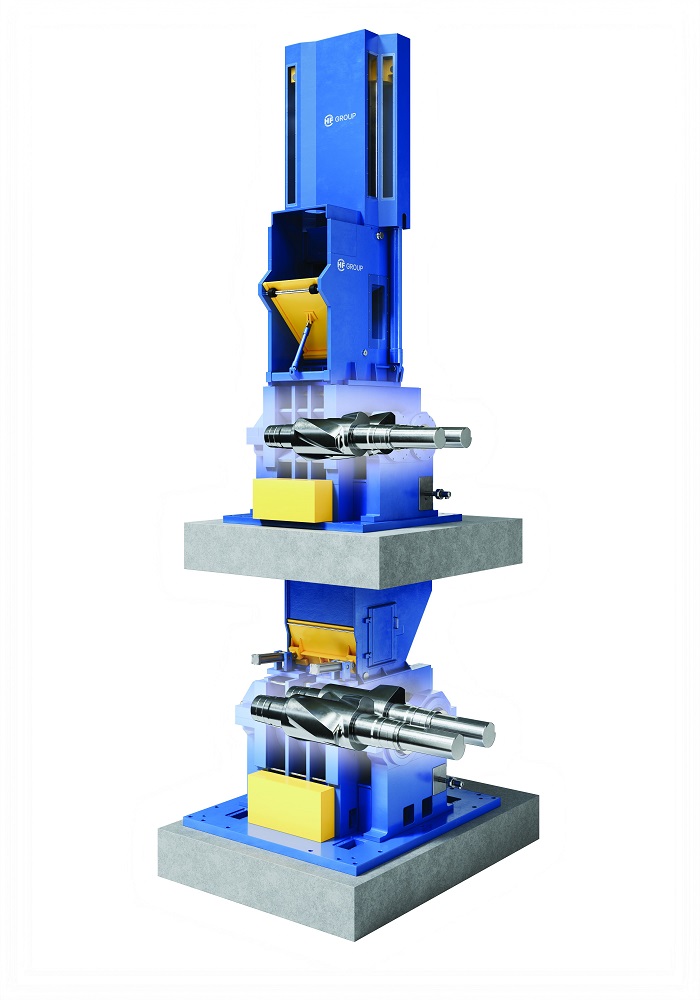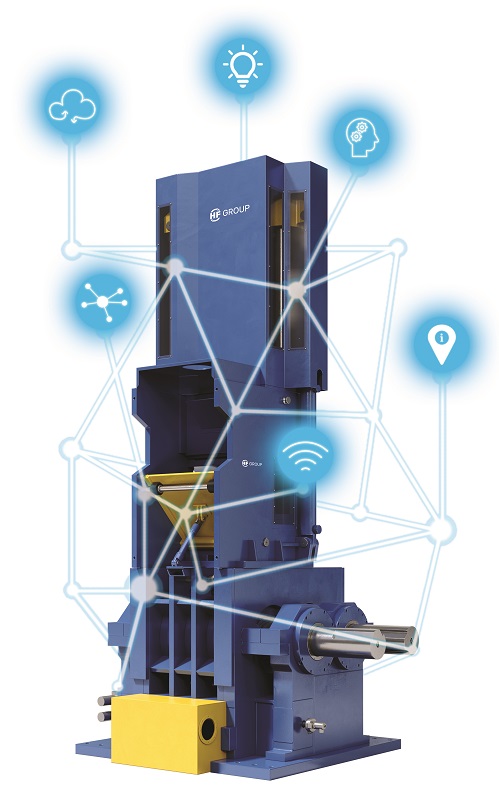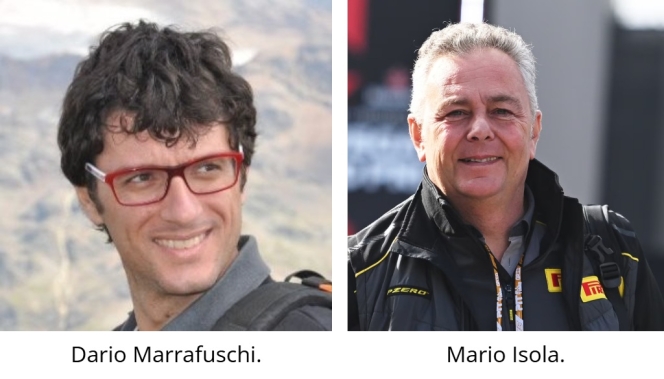Changing Compounds Open Vistas For Smart Mixing, Upgraded Technologies
- By Sharad Matade
- April 17, 2025

The tyre industry is undergoing a profound transformation, driven by sustainability, digitalisation and material innovations. As manufacturers push the boundaries with high-silica compounds, recycled rubber and alternative materials like dandelion rubber, the mixing process faces increasing complexity. Traditional methods struggle to maintain efficiency, necessitating advanced technologies like HF Mixing Group’s Tandem mixing and smart solutions. With automation, and precision engineering, the industry is redefining efficiency and sustainability.
Tyres are a sheer example of impeccable chemical engineering. From passenger car radials (PCR) to off-the-road (OTR), these technical marvels can carry loads weighing tonnes even in the deadliest of roads. For centuries, they have been the backbone of logistics, transportation and more.
But making a tyre is not an easy task. It involves a tremendously meticulous process ranging from raw material selection to mixing compounds for deriving the exact formula that gives these rubber casings durability, elasticity and more.
As the global tyre industry undergoes a transition in every critical aspect, it also sees a change in compounds that go into mixtures. This in turn paves the way for upgradation in technologies.
According to HF Mixing Director of Product and Services, Nils Spier, “The growing use of silica in passenger tyres is reshaping the industry with specifications now reaching 100, 130 and even 180 parts per hundred rubber (PHR). Levels above 150 PHR have recently gained traction, particularly in the premium segment, where high-performance tyres demand lower rolling resistance and improved wet grip.”
On the other hand, he revealed to Tyre Trends that increasing silica content presents technical challenges. Standard single-mixer setups face limitations due to the need for adequate silanisation time. When more silica is added, the process becomes more complex and time-consuming. HF Mixing Group’s Tandem mixing technology addresses this by transferring the process from an upper to a lower mixer, preventing capacity losses and optimising mixing efficiency.
“Dispersion is another critical factor as silica’s inherent stickiness complicates processing. The upper mixer completes the dispersing task, utilising a geometry established in the industry for over 20 years. The latest-generation PES7 mixer builds on this, ensuring the same high-quality results. Once the compound moves to the lower mixer, further refinements occur. A specialised bottom mixer rotor TRC, developed to enhance cohesion and compacting, helps mitigate issues where certain components tend to crumble. Without this step, batches risk fragmenting into plates and uneven portions, complicating further processing. The Tandem mixer’s rotor system ensures that the full batch remains intact, facilitating smooth transfer onto a mill or twin-screw extruder,” he added.
In a nutshell, the Tandem mixing technology allows tyre manufacturers to accommodate higher silica content without compromising processing efficiency or final product quality.

HF’s latest advancements in mixing technology are delivering notable efficiency improvements, particularly in intermeshing rotor systems. The PES7 rotor, introduced around two years ago, has now been successfully deployed at multiple customer sites, showing strong results in both new and retrofit applications. The rotor upgrade offers an increased mixer empty volume plus higher possible fill factors, resulting in a 10–15 percent increase in throughput without compromising cycle time or product quality.
UPGRADING MIXING TECHNOLOGY THROUGH SMART DIGITAL SOLUTIONS
According to Spier, “Tandem and the smart digital mixing solutions represent a holistic approach to optimising the mixing process. The smart final mixing solution is a software and service concept developed by HF, designed to work in close collaboration with customers. The process begins with defining the customer’s target recipe and process parameters, followed by calibration tests conducted on-site.”
Calibration tests involve capturing the fingerprint of the mix including rotor speed, drive data, temperature control unit settings and ram seating time. This data is then processed through the company’s proprietary algorithms and material models, which simulate various mixing scenarios to identify optimal process parameters.
The simulation models predict key variables such as batch temperature development at different rotor speeds and the impact of ram lift adjustments to improve compound aeration. This approach eliminates the need for extensive design of experiment, accelerating the optimisation process without compromising on productivity of the production equipment.
 The smart mixing solution is specifically designed for HF mixers as the company has precise knowledge of the machine parameters, cooling surfaces and other mixer-specific properties. The validation trials conducted post-simulation have demonstrated cycle time reductions up to 20 percent, translating into significant efficiency gains for manufacturers.
The smart mixing solution is specifically designed for HF mixers as the company has precise knowledge of the machine parameters, cooling surfaces and other mixer-specific properties. The validation trials conducted post-simulation have demonstrated cycle time reductions up to 20 percent, translating into significant efficiency gains for manufacturers.
Moreover, the company’s smart mixing approach optimises key parameters to enhance energy efficiency and quality in the mixing process. Cycle time is a primary focus with proprietary algorithms minimising unnecessary processing steps while ensuring uniform distribution and dispersion of the curative package.
Rotor speed plays a crucial role as it must be adjusted at different phases of mixing. A higher speed may be beneficial in the initial dispersion stage, but excessive speed leads to rapid temperature increases, negatively affecting compound properties. The company’s models balance rotor speed, energy efficiency and temperature for optimal results.
Lastly, fill factor is essential for both quality and efficiency. Overfilling can result in uneven mixing and longer processing times, while underfilling reduces throughput and jeopardises batch quality. The company’s Smart Final Solution ensures that the fill factor is set to an ideal level for maximum quality and throughput.
TECHNOLOGICAL INCLUSIVITY
The company’s approach to smart mixing is currently data-driven and reliant on process specialists, but the role of artificial intelligence (AI) in this field is expected to grow. “While AI has the potential to make autonomous decisions and process adjustments in the future, we still integrate human expertise alongside digital tools to ensure process reliability. Factors such as installed downstream equipment, mixer conditions and on-site variations must be considered, which currently require operator input. However, we are already exploring AI-driven solutions such as predicting batch temperature, optimising carbon black incorporation and refining oil dispersion, which could eventually enhance process automation,” informed Spier.
While digitalisation is a key part of the company’s transformative roadmap, AI’s role is still in development. Instead of full AI automation, it employs advanced models and algorithms that run extensive simulations to optimise mixing conditions without compromising quality. These models provide real-time feedback on the best possible process adjustments, delivering improvements in efficiency, quality and consistency.
Alluding to whether older mixers installed 5 to 10 years ago can be retrofitted with recent upgrades, he noted, “There is a possibility of retrofitting smart solutions to enhance its capabilities. Rather than relying solely on AI, we offer in-line process monitoring, where historical mix data is used to establish a reference baseline with tolerance bands. This allows for real-time adjustments.”
The mixing process is fully automated with step-related control systems defining key parameters such as mixing time, specific energy input and rotor speed per step, batch temperature to ensure precision and consistency. Every mixing step can be supported by HF’s unique intelligent controller technology such as intelligent Ram control iRam, the HF constant temperature controller or iXSeal Dust Stop Lubrication Controller.
PROCESS ADAPTATION
Tyre makers are increasingly experimenting with alternative materials, such as recycled rubber and dandelion-derived compounds, which significantly impact the mixing process. Adjustments are necessary to maintain efficiency and quality, as non-traditional materials alter torque curves and require parameter modifications.
Moreover, different category of tyres requires different mixing processes due to variations in tread compound formulations. Passenger car tread compounds typically differ from OTR formulations, necessitating specific dispersion techniques to achieve the desired performance characteristics.
With that said, it is prudent that companies adapt to changing processes fuelled by market demand. “The company provides a range of rotor solutions to optimise these mixing processes. Tangential rotors are designed to enhance master batch dispersion, especially the NST rotor, ensuring uniformity in the compound. ZZ rotors are mainly used for final batch production, offering precision in mixing the final formulation. In addition, the ZZ rotor geometry has proven strong performance in Master Batch Silica Processing. Additionally, intermeshing rotors are employed to manage specialised compounds, providing better control over the mixing process for unique material requirements,” revealed Spier.
Furthermore, material innovations are significantly impacting the mixing process, requiring process adaptations to maintain efficiency and achieve consistent final results. The use of alternative materials such as recycled rubber or non-traditional sources like dandelion rubber, rCB and other recycled materials alters the torque curves during mixing. These changes necessitate adjustments to mixer parameters, ensuring optimal dispersion and processing without compromising product quality.
To support customers in navigating these challenges, HF’s process experts collaborate closely with them through the technical centre in Germany and worldwide operating process engineers. By testing new processes before full-scale industrialisation, the company helps identify and resolve potential issues in advance.
INDUSTRY SHIFTS
The shift towards premium tyres is shaping the European, Asian and North American markets differently. In Europe, manufacturers are increasingly focusing on premium and OTR tyres while scaling back production of 15–17-inch models and consolidating operations.
This shift is driving higher demand for advanced compounds and increased silica usage. However, capacity expansions remain limited with most investments directed towards equipment upgrades rather than new production facilities.
In Asia, particularly in India and China, greenfield projects are on the rise due to strong automotive demand. This expansion reflects the region’s growing role in the global tyre industry as manufacturers invest in new facilities to meet both domestic and export needs. North America, on the other hand, is seeing a mix of replacement investments and selective large-scale expansions with companies balancing modernisation efforts and strategic growth.
Beyond these key regions, North Africa, specifically Algeria, Morocco and Egypt, is emerging as a new manufacturing hub. This region is gaining traction in the global tyre industry, an area where it previously had little presence. With increasing investment and infrastructure development, North Africa is positioning itself as a competitive player in tyre production.
With many manufacturers shifting to smaller campaign to accommodate different tyre recipe, flexibility in the mixing process has become essential. HF’s automation system is designed to handle these challenges by allowing quick modifications to production plans.
Manufacturers can adjust torque, batch sizes and compound quantities without causing disruptions. Additionally, the manufacturing execution system ensures seamless execution, making even short production runs of 5 to 10 batches efficient and cost-effective.
MARKET EXPANSION
Besides Europe, Asian markets such as China and India remain key growth locations for the company. As manufacturers in these regions adopt new technologies to meet evolving industry standards, the demand for efficient and adaptable mixing solutions continues to rise.
“We continue to invest heavily in innovation and research and development to grow in the Asian market. Allocating three percent of our revenue to innovation and 4.5 percent to development, the company ensures that 35 percent of its projects focus on sustainability. By maintaining technology leadership, we deliver high-quality, high-functionality equipment that supports the growth of new and established manufacturers in the region,” informed Spier.
While HF is known for its high-precision machines used by top-tier tyre manufacturers, it also caters to tier 2 and tier 3 players. The company supplies to many smaller manufacturers.
On the context of sustainability, Spiers noted, “Sustainability is a core focus of our research and development strategy, aligning with the ambitious environmental targets set by tyre manufacturers worldwide. We integrate sustainability by developing energy-optimised mixers with efficient drive setups, introducing new hydraulic power units that significantly reduce power consumption and implementing incremental efficiency improvements such as enhanced heat management to extend machine longevity.”
Lastly, the company provides comprehensive service beyond commissioning, including operator training, process optimisation and trouble-shooting, round-the-clock support via ticket and hotline systems and fast-response local service teams across China, South-East Asia, India, North America, North Africa and Europe.
KraussMaffei Technologies Appoints Dirk Musser As New Managing Director
- By TT News
- February 27, 2026

KraussMaffei Group is set to implement a leadership transition at its subsidiary, KraussMaffei Technologies, with a change at the board level. Jörg Stech, who has served as Chairman of the Board and global head of injection moulding, automation and additive manufacturing since 2023, will be departing on 31 March 2026 at his own request. He will be succeeded by Dirk Musser, the current Head of Group Transformation at the parent company, who has been appointed as the new Managing Director effective 1 April 2026. The leadership handover between Stech and Musser is already in progress, ensuring a seamless transition.
Stech’s tenure unfolded during a difficult economic period marked by financial losses and a contracting market. He responded with decisive measures aimed at margin enhancement and balance sheet improvement, which laid the groundwork for the company's long-term stability. Under his direction, the product lineup for injection moulding and automation was revitalised with the introduction of the LRXplus linear robot, the fully electric PX series and the MC7 control system, all launched in late 2025 alongside new artificial intelligence tools. He also launched a multi-year development initiative and pushed the company into new markets, such as aerospace and drone technology, by leveraging expertise in specialised processes like ColorForm. Through a focus on operational excellence, pricing discipline and capital efficiency, Stech guided the company to a significantly more resilient position compared to three years prior, despite the persistent downturn in injection moulding.
Musser brings to his new role extensive experience in transformation and finance. In his current capacity, he has already been closely involved with KraussMaffei Technologies, collaborating with its leadership to drive strategic initiatives and enhance operational performance. His qualifications include sharp analytical abilities, a strong grasp of industrial processes and a broad international perspective. An economist by training, Musser has accumulated over 20 years of leadership experience across various technology and industrial sectors. His background includes leading major transformation and turnaround projects at CRRC New Material Technologies, where he stabilised plant earnings in North America, as well as directing operational and financial restructurings during his time at Deloitte. He has also held roles with P&L responsibility, managing global supply chains and post-merger integrations at CRONIMET and has prior experience with automotive manufacturers including Daimler and Fujian Benz Automotive in China.
Alex Li, CEO, KraussMaffei Group, said, "Jörg Stech took on responsibility in a difficult situation, set clear priorities and launched decisive initiatives. The successful market launch of the LRXplus linear robot and the all-electric PX machine series, the consistent focus on profitability and the sustainable strengthening of our balance sheet are visible results of this work. We would like to express our sincere thanks to Jörg Stech for his leadership, integrity and team spirit. We value Dirk Musser as a leader who combines strategic clarity with operational excellence. In a short period of time, he has provided vital impetus for the transformation of the group and impresses with his analytical strength, decisiveness and deep understanding of our processes – not least through his successful collaboration with the managing directors of KraussMaffei Technologies. We are convinced that he will continue on this path with clarity and creative drive to successfully align KraussMaffei Technologies."
Stech said, "After many years in an environment full of technological, economic and geopolitical challenges, I look back with great gratitude on a time in which I was always surrounded by an exceptional workforce. Together, we achieved things that many initially thought were impossible. This cooperation, this willingness to push boundaries and create something new, was a joy for me. My special thanks go to all stakeholders in the company and, of course, to all employees. I leave with respect, gratitude and the conviction that this long-established company will continue to achieve great things in the future."
Musser said, "Together with my fellow managing directors Dr Frank Szimmat and Markus Bauer, I want to resolutely drive forward the further development of KraussMaffei Technologies. Our focus is on further expanding stability and performance and taking the necessary steps to successfully position the company in a dynamic market environment. I look forward to shaping this path together with our teams.”
Dario Marrafuschi Succeeds Mario Isola As Pirelli’s Head Of Motorsport
- By TT News
- February 27, 2026

Italian tyre manufacturer Pirelli has announced that Dario Marrafuschi will become the Head of its Motorsport Business Unit, effective 1 March. He succeeds Mario Isola, who will remain with the company until 1 July to assist with the leadership transition.
Marrafuschi joined Pirelli in 2008 and has held positions within the Formula 1 Research and Development department. Most recently, he led the development of the company's road products.
He will report to Giovanni Tronchetti Provera, Executive Vice-President of Sustainability, New Mobility & Motorsport. The appointment comes as the company continues its role as the tyre supplier for various global motorsport categories.
Isola departs the company following a tenure that included the expansion of Pirelli’s motorsport operations. The company stated that Isola will pursue other professional opportunities following his departure in July.
Changing Tyre Dynamics In A Changing Car Market
- By Sharad Matade
- February 27, 2026
For Continental Tires India, the passenger vehicle market in India is entering a phase where scale and structure are finally aligning with its longstanding premium ambitions. Passenger vehicle sales reached a record 4.3 million units in 2024, expanding by 4–5 percent year on year, but it is the composition of that growth – rather than the headline volume – that is reshaping the company’s strategy. Utility vehicles now account for approximately 58 percent of total passenger vehicle sales, up sharply from about 51 percent the previous year, cementing SUVs and crossovers as the dominant force in the market.
This structural shift has direct consequences for tyre manufacturers operating at the upper end of the value spectrum. Larger vehicles bring higher kerb weights, bigger wheel diameters and greater expectations around refinement, safety and performance. For Continental, the change represents not merely an increase in addressable demand but a decisive move towards tyre categories where technology differentiation and pricing discipline can coexist.
Samir Gupta, Managing Director of Continental Tires India, calls this phase a turning point, not a temporary high. He says the surge in utility vehicles – driven by electrification and more premium cars – fundamentally changes the economics of the passenger tyre market in India.
“Let me clarify one thing first. The utility vehicle segment is no longer small. Last year, around 60 percent of passenger vehicles sold in India were utility vehicles, and including first-time buyers upgrading within this segment, the share goes beyond 65 percent,” Gupta says.

Industry data broadly supports this assessment. SUVs alone contributed close to three-fifths of all passenger vehicle sales in 2024, with compact utility vehicles accounting for a significant share of incremental volumes. The overall passenger vehicle market, at around 4.3 million units, has thus become structurally skewed towards larger formats – an inflection with long-term implications for tyre sizing, load ratings and product mix.
This shift shows in replacement demand. As vehicle footprints grow, rim diameters are increasing. “The market is clearly moving from smaller to bigger rim sizes. Demand for 17-inch and above tyres is rising sharply,” Gupta says. While these tyres are still a minority, their growth far outpaces the overall passenger tyre market.
Electrification is accelerating the shift. A substantial proportion of electric passenger vehicles sold in India today are SUVs, and Continental expects EVs to account for more than 50 percent of the passenger vehicle segment within five years. For tyre manufacturers, this creates new technical requirements – higher torque tolerance, lower rolling resistance and stringent noise control. “That creates a significant opportunity for us because our strengths lie in premium, high-performance tyres,” Gupta says.

Despite these favourable structural trends, premium tyres have historically struggled to gain traction in India. For much of the past decade, the market remained intensely price-sensitive, with tyres treated largely as commoditised replacement items. Continental’s response, Gupta explains, has been consistent rather than tactical pricing. “Right from the beginning, we have focused on fair pricing. The idea is simple – if we can clearly differentiate on performance and consistently deliver on those promises, price recovery will follow,” he explains.
The broader environment is now becoming more supportive. As vehicle prices rise and consumers migrate towards larger, more sophisticated vehicles, willingness to spend on tyres that enhance safety, comfort and driving confidence is increasing. This trend is also evident at the top end of the market. Premium and luxury passenger vehicle sales reached approximately 51,500 units in 2024, up around 6 percent year on year and crossing the 50,000-unit threshold for the first time – a symbolic marker of premium consumption in India.
Gupta sees premiumisation extending beyond luxury vehicles. “Earlier, India was extremely price-sensitive, but that is changing in higher segments. Consumers are upgrading vehicles and are more willing to invest in tyres that enhance safety, comfort and confidence,” he says.
The intensification of competition, with global premium tyre brands expanding or re-entering India, is viewed as a positive development. “Competition is always good,” Gupta says. “It gives you room to grow and improve.” More importantly, he believes it will help reframe the market. “More premium players will help move the market away from being purely cost-driven to being value-driven,” he adds.
Replacement market dynamics reinforce this view. Of the roughly 32–33 million passenger tyres replaced annually in India, tyres sized 17 inches and above account for about 12–13 percent. While the overall replacement market grows at 5–6 percent per year, this high-diameter segment is expanding at over 20 percent annually, closely tracking the shift in new vehicle sales.
This sharper focus on passenger tyres also explains Continental’s decision to exit the truck and bus radial segment in India. Gupta stresses that the decision was strategic rather than operational. Continental entered the TBR market in 2014, invested significantly and received strong feedback on product performance.
However, the economics proved limiting. Gupta says, “TBR in India is largely a B2B, fit-for-purpose market. Even if you have the best tyre, willingness to pay remains limited because fleet operators are under constant margin pressure.” Although commercial tyres offer higher absolute margins per unit, they consume substantially more raw material. “One commercial tyre uses six to eight times the raw material of a car tyre. Percentage margins are actually higher in passenger tyres,” Gupta explains.
After reviewing its portfolio, Continental chose focus over breadth. Exiting TBR allows the company to concentrate capital, technology and management attention on passenger and light truck tyres, where differentiation is more readily monetised. Gupta rejects the idea that a narrower portfolio weakens the company’s position. Commercial and passenger tyre customers, he argues, are fundamentally different – one driven by procurement economics, the other by consumer perception and emotion.
Indian consumers, Gupta believes, are becoming more tyre-aware. “Premiumisation is happening across the vehicle industry, not just in tyres. As consumers move to larger and more premium cars, their expectations also rise,” he says. Where tyres were once treated as an afterthought, buyers increasingly recognise their role in braking, grip, noise and overall driving confidence.
This change is evident at the retail level. Continental now operates more than 200 brand stores across India, and feedback from retail partners suggests customers are more informed and more demanding. Availability remains critical. “There is no point launching premium tyres if customers cannot find them,” Gupta says.
To support future demand, Continental is investing around INR 1 billion at its Modipuram plant, with the focus squarely on passenger and light truck tyres. The expansion will extend manufacturing capability from the current 20-inch limit to 22–23 inches, aligning local production with emerging vehicle trends.
Localisation, Gupta argues, is about adaptation rather than compromise. Indian road conditions, climate and driving habits require specific tuning without diluting global performance standards. Education and availability remain the principal challenges.

The recent launch of the CrossContact A/T² in India reflects this strategy. Introduced during Continental’s Track Day at Dot Goa 4x4, the product positions India among the early global markets for the tyre. “The first thing you notice is noise – or the lack of it,” Gupta says. “You hear the air-conditioning, not the tyre.” Ride comfort, grip and consistency across terrains define its appeal. As Gupta puts it, “Jahan tak soch jaati hai, wahan tak yeh tyre kaam karta hai.”
Looking ahead, Continental remains largely insulated from shifts in original equipment strategies, such as the gradual removal of spare tyres. Improved carcass design and stronger sidewalls are reducing puncture risk, but the company’s primary focus remains the replacement market.
For Gupta, the question is no longer whether India is ready for premium tyres, but how effectively manufacturers execute. “The market is finally ready for premium tyres,” he concludes. With passenger vehicle sales at record levels, SUVs firmly dominant and premium consumption expanding, Continental believes it is well positioned to grow alongside India’s evolving mobility landscape.
Falken Tyre Europe GmbH Rebrands As DUNLOP Tyre Europe GmbH
- By TT News
- February 26, 2026

Falken Tyre Europe GmbH has officially transitioned to operating under the name DUNLOP Tyre Europe GmbH, following its formal registration with the Offenbach Local Court. This change signifies a pivotal development for the Sumitomo Rubber Industries subsidiary. The rebranding represents a calculated and essential move to establish a more formidable European footprint for the DUNLOP brand. Company leadership acknowledges that this evolution is built upon the considerable equity established by Falken, including its strong market recognition, unwavering product quality and the commitment of its personnel.
This strategic shift positions the organisation under the umbrella of a globally respected marque, with its future strategy firmly centred on expansion, pioneering advancements and ecological responsibility. A prominent symbol of this new chapter will be unveiled shortly, with the renaming of the DUNLOP City Tower in Offenbach. A formal ceremony will mark the occasion, featuring the presentation of the DUNLOP logo at the tower. The event is set to be attended by Offenbach's Lord Mayor, Dr Felix Schwenke, alongside the company’s managing directors, Hiroshi Hamada and Markus Bögner, and the newly enlarged DUNLOP team.
Markus Bögner, Managing Director and President, DUNLOP Tyre Europe GmbH, said, “The name change is an important milestone of which we can be very proud. It strengthens our identity and underlines that we are ready for the next steps. Our strong heritage with Falken is and remains part of our success, laying the foundations for DUNLOP’s future in Europe. Our thanks go to all our employees and partners who have supported and accompanied us on this journey.”







Comments (0)
ADD COMMENT